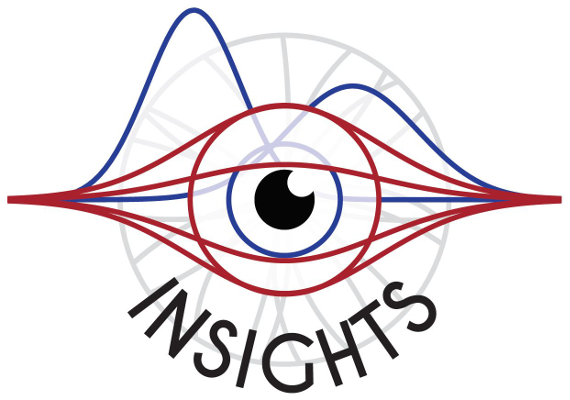Marie Sklodowska-Curie ITN
International Training Network of Statistics for High Energy Physics and Society
Insights is a 4-year Marie Sklodowska-Curie Innovative Training Networks project for the career development of 12 Early Stage Researchers (ESRs) at 10 partner institutions across Europe. One of the INSIGHTS research projects will be carried out at CERN full-time. INSIGHTS is focused on applying latest advances in statistics and in particular, machine learning to particle physics.

Insights is funded by the European Union’s Horizon 2020 research and innovation programme, call H2020-MSCA-ITN-2017, under Grant Agreement n. 765710.
Our Mission
The INSIGHTS Innovative Training Network will develop advanced statistical methods, implement them in software, and apply them to solve problems in Particle Physics and other fields. In doing so, we will create the next generation of experts not only able to investigate Nature’s fundamental particles but also to solve problems of broad relevance to society. The analysis of data collected in Particle Physics experiments such as those at the Large Hadron Collider (LHC) poses tremendous challenges, and advanced statistical methods have proven to be key elements of recent advances in the field. INSIGHTS will enable significant further progress with particular emphasis on multivariate analysis, parametric modelling and Bayesian computation. We will ensure that the statistical tools can cope with the complexities of real experimental settings by using them in actual analyses, such as searches for new fundamental particles at the LHC. In carrying out the proposed research, INSIGHTS will train a cohort of physicists in modern statistical methods and establish collaborations and educational structures that will continue long into the future. In particular we plan to establish a new Pan-European Advanced School of Statistics, which will take the training of EU researchers to a higher level. The participating institutes in INSIGHTS have a successful track record of and innovation and education in statistical data analysis, and their expertise will form the core of the training provided. In addition, secondments with partners in other disciplines such as Finance, Climate Science and Volcanology will allow participants to view statistical and computational problems from multiple viewpoints and to exchange ideas between these areas and Particle Physics.
The Work Packages
- Statistical Methods (coord.: A. Caldwell)
- Software Tools (coord.: W. Verkerke)
- Physics Applications (coord.: A. Read)
- Statistics for Society (coord.: F. Priuli)
- Management (coord.: G. Cowan)
- Training (coord.: L. Lista)
- Outreach (coord.: T. Dorigo)

